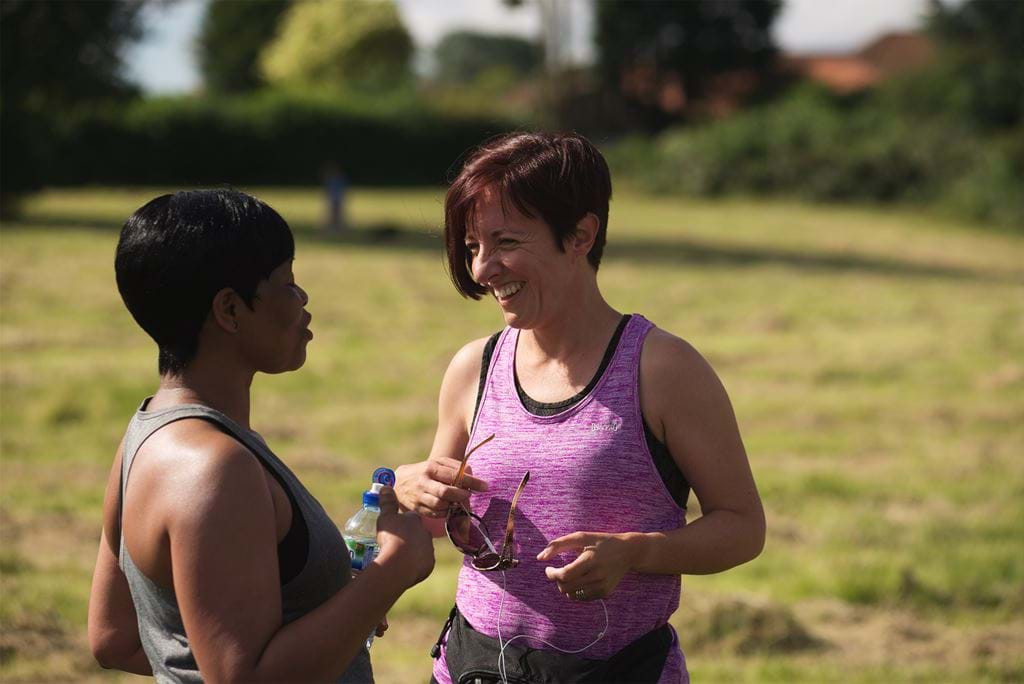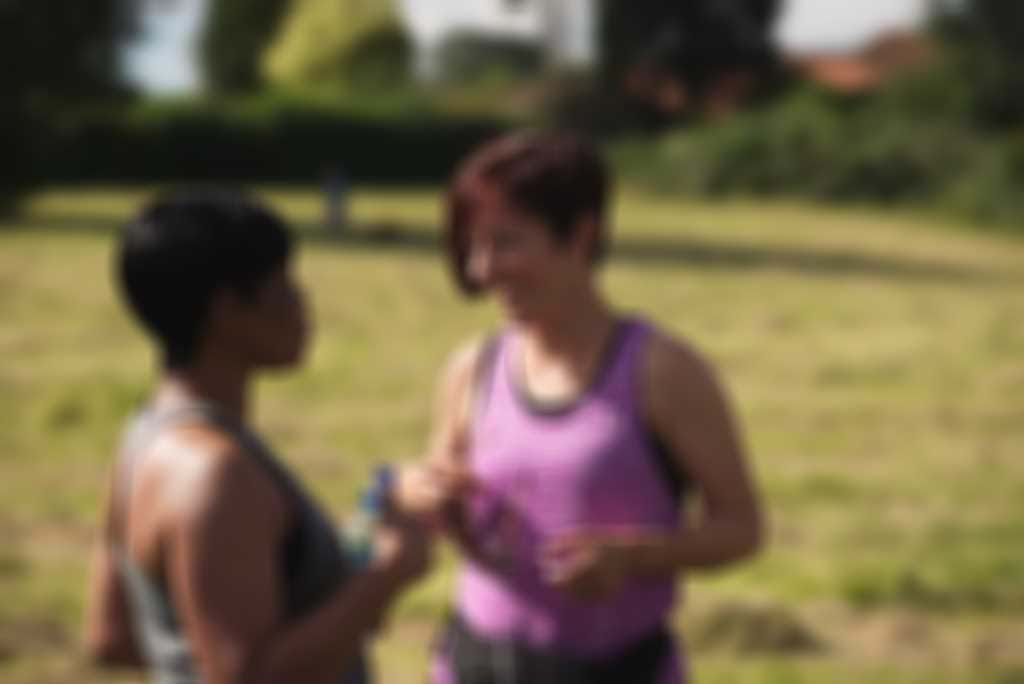The Champions of the Mind - #Runandtalk week
10 October 2016

Earlier this year England Athletics (EA) launched their mental health ambassador programme. What do they hope these very special people will achieve? This article is one of a series that we are publishing as part of this week's #Runandtalk activities.
Written by Tina Chantrey, a MHA ambassador, contributing editor, Women's Running, and runner who blogs as shewhodaresruns:
This morning I went for a run. That might not seem like much, but six years ago even getting out of bed was a challenge. It might seem extreme, but running saved my life. For me, it’s not about the physical benefits; running lets me protect my mental health. So when England Athletics asked me to be a mental health ambassador, I jumped at the chance with both feet (clad in trainers).
“The role of the ambassadors is to champion the mental well-being benefits of running and be a friendly face and point of contact for anyone experiencing mental health problems who wants to start, return to or continue running,” says Liz Purbrick, National Disability Manager for England Athletics.
By working with Mind, the mental health charity, England Athletics hope the programme can continue to breakdown some of the stigma attached to mental health and support people to access the social, physical and mental wellbeing benefits that running can bring. “England Athletics strongly believes that running changes lives and our wonderful ambassadors, all people with lived experience of mental health problems, either themselves or through a family member or friend, are a great example of this.”
Already, over 200 volunteers, from 151 different clubs and groups across England, have signed up to the programme. It’s hoped these people will reach out to potential runners. Hayley Jarvis, community programmes manager for sport, at Mind, adds: “Starting running when you have a mental health problem can be really difficult due to concerns around body image, self-confidence and the effects of medication. We’ve have found that building in social, and fun, activities and providing peer support is crucial for both encouraging and sustaining participation.”
The importance of this scheme is in raising awareness that mental health issues can be helped. “If you are affected by mental illness then you shouldn’t feel stigmatized, nor should you feel alone,” says Dr Rhonda Cohen, a sport and exercise psychologist at Middlesex University (mdx.ac.uk) and author of Sport Psychology: Optimising Performance. “Instead you could try using a technique which is free and easy to do - running. You just need to grab your trainers and step outside.”
Running is a free therapy; with each step you develop a rhythm which helps clear your mind. Running provides you with a sense of 'mindfulness' as you run and become a part of being in the moment. “Distracting thoughts reduce as running puts you in the driver's seat while you control your every step,” says Dr Cohen. “Your demons can also be conquered, for you will grow in self-confidence as you accomplish each small goal.”
Running encourages social interaction and making friends which can prevent solitude and alleviate loneliness. It also releases endorphins, hormones naturally produced by the body to improve your mood and act as a pain relief. Dopamine and serotonin are neurotransmitters in the brain, and both affect your mood; low serotonin has been linked in research to depression. “You can stock up this chemical store by running,” advises Dr Cohen. This store is your body's own natural defence against depression and anxiety. It's your shield against negativity and can help you control mental health conditions.
“It’s often hard to motivate yourself when you feel depressed or anxious or have a mental health issue. The more you run the more your confidence will blossom and the stronger, mentally and physically, you will feel.” It’s always good to #runandtalk.
We asked one of the Mental Health Ambassadors to share their story
“I don't know if I'll ever love the actual running but I love the journey it has enabled me to make”
Zoe Clarke* (*name has been changed to protect identity) uses running to cope with debilitating agoraphobia, anxiety and panic attacks
“This weekend I have swum a mile in open water, worn fancy dress at my local parkrun and taken part in the Women’s Running 10K in Southampton. This time last year I couldn't run at all.
“This time three years ago I was four stone heavier, often needed a stick to walk and hadn't left the house for over a year.
“This time 11 years ago I was caught up in the 7/7 bombings and held my best friend as he died as a result of one of the bombs.
“The resulting agoraphobia, anxiety and panic attacks narrowed my world and social contact to nothing. I wanted change but fear and shame made it impossible to ask for help. Big plans for change were overwhelming so I started with weight loss; in hindsight I think it was a way of postponing leaving the house, but I lost the weight. Success breeds success and one night I hit target weight and on the wave of euphoria decided to 'go out'. Three hours later I had walked round my car, twice!
“I started walking at night to avoid meeting people but one night I was frightened and ran the last bit home and surprised myself by feeling good afterwards. I wanted that feeling again and this changed the focus from surviving an ordeal to seeing how far I could go. Being out of breath would trigger a panic attack, but the running gave me targets and success and determination. The self-belief was addictive. I was terrified to stop in case I started to slide backwards.
“My son wanted to do a Color Run so running in daylight was my next target. Each milestone became a measurement of my emotional health. Still hopelessly unfit, I shuffled round the Color Run and chalked it up as a success - I'd left the house, been with people and most of all, I'd had fun.
I used running to start meeting people. I got lucky with a running group. The run leader, Katharine Jones, didn't fuss or judge when panic threatened. Nor did anyone else. I made friends, shared jokes, texts, successes and disappointments.
“I still have to constantly challenge myself, to prove I'm winning the battle. I enter events and start conversations with strangers. I've made two great friends that way. The great thing for me about running is that I will never run out of challenges.
“I don't know if I'll ever love the actual running but I love the journey it has enabled me to make. Some days are still difficult. Some days the fear of leaving the house is overwhelming. But most days I meet that day's target and triumphantly wave two fingers to the black dog.”
More news from RunTogether




